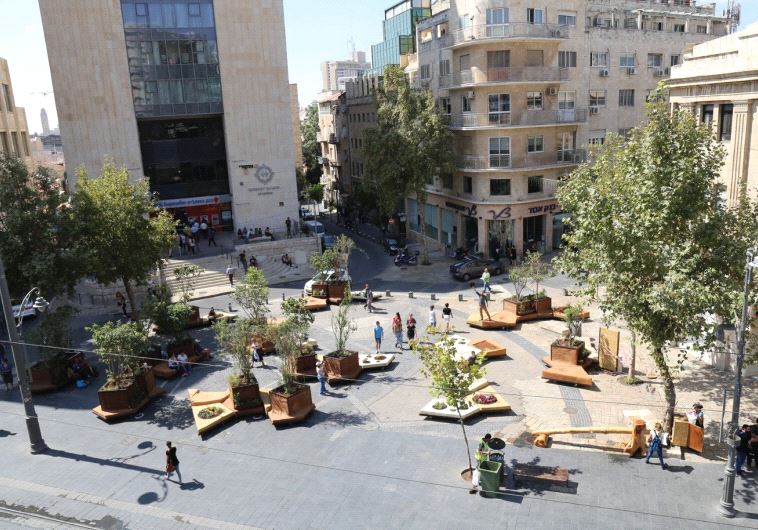A tree grows in Zion
Spectrum hosts an end-of-Shabbat event for everyone on September 10 in Zion Square.
 The ‘Out of Zion’ tree installation in Zion Square, part of the Mekudeshet Festival(photo credit: DAVID ABITBOL)ByARIEL DOMINIQUE HENDELMANRead More
The ‘Out of Zion’ tree installation in Zion Square, part of the Mekudeshet Festival(photo credit: DAVID ABITBOL)ByARIEL DOMINIQUE HENDELMANRead More